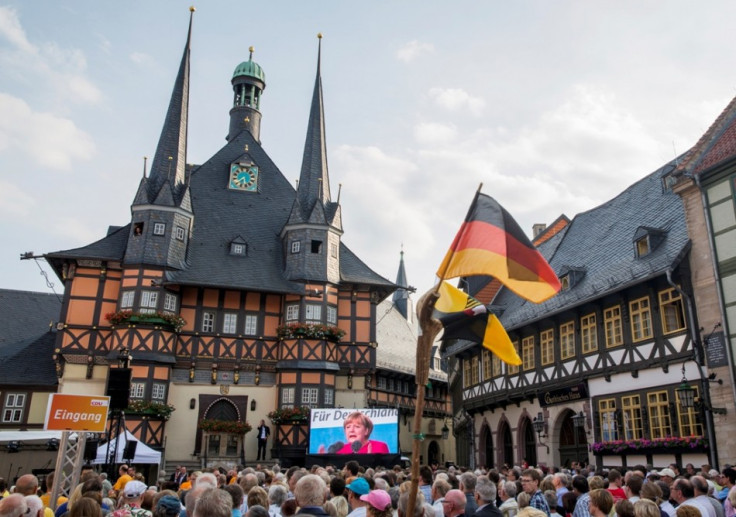German Economy Growing Again as Angela Merkel Eyes Another Elections Triumph

Germany's economy grew at its strongest quarterly pace in more than a year during the second quarter thanks to improved domestic demand and higher spending on construction.
The country's Federal Statistics Office confirmed on Friday that Europe's largest economy expanded 0.7% on the quarter before and by 0.9% year-on-year in the three months to June, matching earlier estimates.
In the first quarter, Germany's economy saw zero growth after a 0.5% decrease in GDP in the final three months of 2012.
Second-quarter growth is primarily attributed to improved domestic demand. Household expenditure improved by 0.5% from the first quarter, while government expenditure was up 0.6%.
In addition, fixed capital formation rose significantly as spending on machinery and equipment increased 0.9% on the previous quarter and expenditure on construction was up 2.6%.
Higher spending on construction was mainly due to "weather-related catch-up effects following the unusually long and cold winter," according to the Statistics Office.
Furthermore, exports of goods and services in the second quarter increased 2.2% on the previous three months, while imports rose 2%. The resulting balance of trade contributed 0.2 percentage points to GDP growth.
Positive News for Merkel
Compared to its European peers, Germany has effectively overcome the credit crisis that blighted the single-currency region.
Growing GDP comes as Chancellor Angela Merkel faces an election on 22 September. It adds to a bunch of recent key economic data that are expected to help Merkel's campaign for another term.
The flash Germany composite output index released by Markit on Thursday rose to a seven-month high at 53.4 from 52.1 in July. Manufacturing PMI rose to 52.0 from 50.7 and Services PMI lifted to 52.4 from 51.3.
The growth on the back of strong domestic and export demand indicates a strong start for the second half of 2013. It confirms that "Germany's economy is back on a solid footing and likely to remain in expansion through the third quarter of 2013," said Markit Economist Tim Moore.
Nevertheless, the Bundesbank earlier predicted that economic growth will slow in summer, as it forecast 0.3% growth for 2013 as a whole.
© Copyright IBTimes 2025. All rights reserved.






















